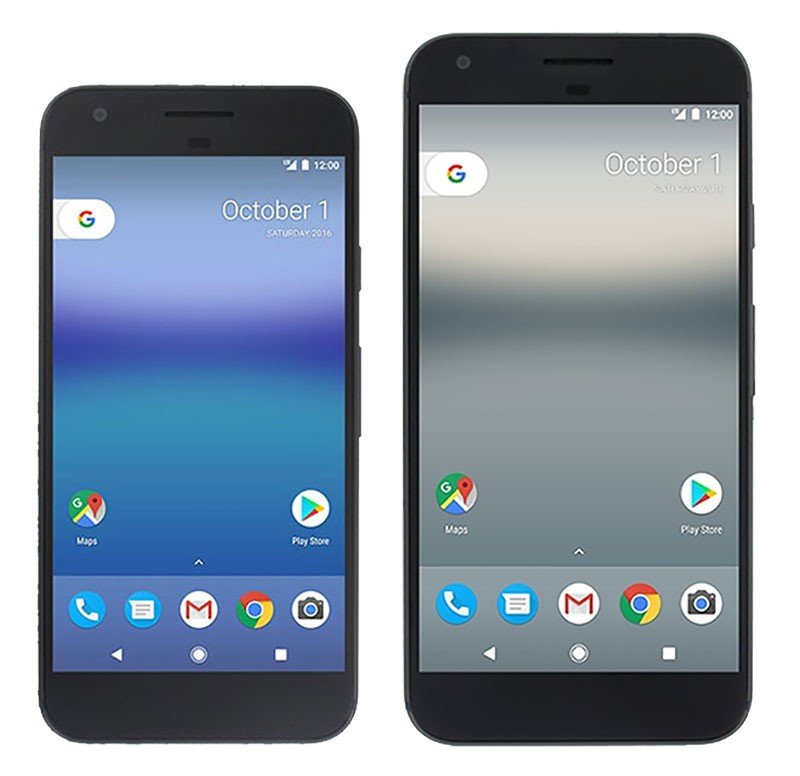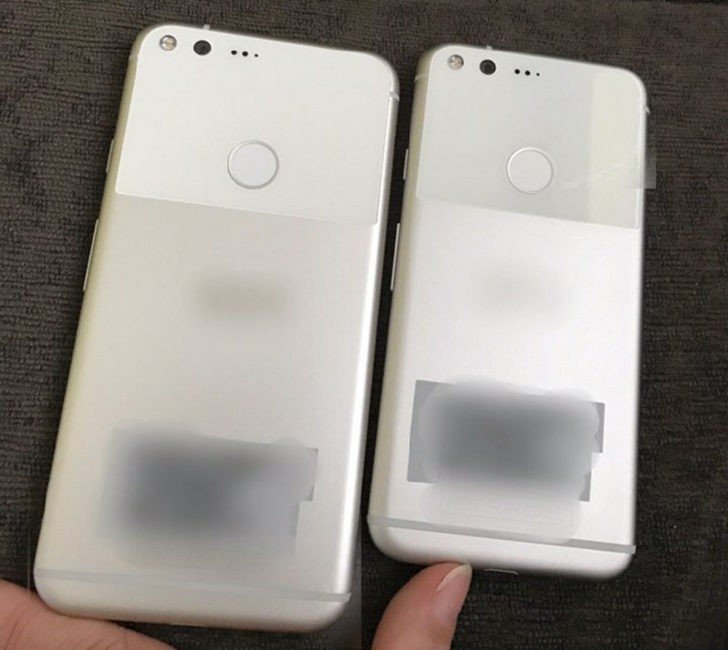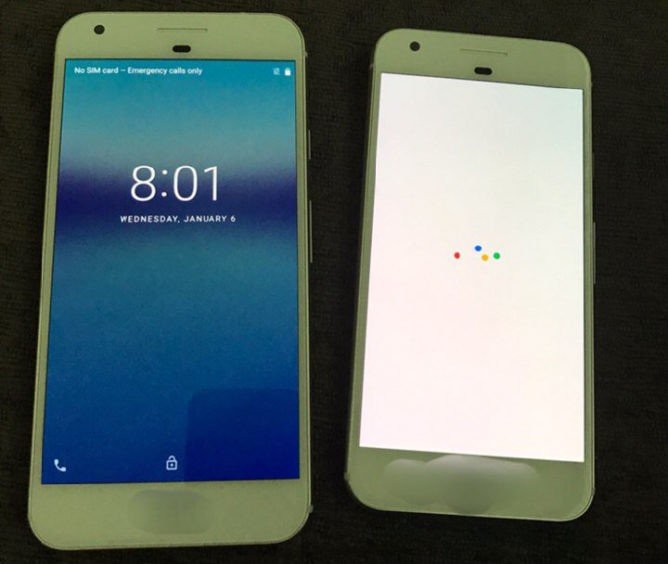Google Pixel and Pixel XL: What to expect from the Nexus successors

Update: Our Pixel hands-on preview is live! Go read it!
For the past seven years, Google partnered with some of the leading Android phone makers to sell co-branded handsets under the "Nexus" name. This year, the company is set to unveil two new handsets under a brand that's new to phones, but well known to Google followers: Pixel.
On October 4, Google will hold an event in San Francisco where it'll unveil two new phones "made by Google." We'll reportedly get the Pixel and Pixel XL, the regular Pixel sporting a 5-inch screen, and the XL stepping up to 5.5 inches. They'll be manufactured by HTC, but expect the Taiwanese firm to stay out of the public eye, with the Google brand coming front and center. And when it comes to software, expect Android 7.1 (the first Nougat maintenance release) along with UI changes and a new suite of Google apps.
Here's a breakdown of what we're expecting come October 4.
The Pixel name
Google first used the Pixel name for its Chromebook Pixel laptops — a pair of premium notebooks made by the company. In late 2015 Google then unveiled the Pixel C convertible — a big-screened Android tablet with a keyboard dock.
Like Nexus, the Pixel brand has evolved over time. Originally it referred to the high pixel density of the Chromebook Pixel's impressive display. Then with Pixel C it became more closely associated with hardware from Google. There's been speculation around Pixel phone since then, and now, it seems, the time is right.
The Pixel brand has evolved over time — now it's clear Pixel means the very best Google hardware.
The move from Nexus to Pixel represents a change in strategy for Google-branded phones. Whereas Nexus devices were created in a very public partnership with an Android manufacturer, Pixel is looking more like a traditional ODM (original device manufacturer) arrangement. HTC builds phones to Google's spec, then Google sells them directly, pitches them to carriers and promotes them as phones "made by Google."
Be an expert in 5 minutes
Get the latest news from Android Central, your trusted companion in the world of Android
MORE: HTC's role in Google's Pixel project
As for whether the phones are truly made by Google... well, let's remember the iPhone is technically made by Foxconn, not Apple. There's more to it than whose factory a phone comes out of.
And as we'll get to later, the new brand will also let Google distinguish its new "Pixel" UI — including a new launcher, color scheme and software features — from the relatively barebones Nexus software experience.
Pixel phone hardware
Update, 9/27: The first Pixel phone renders have now leaked, showing circular icons, redesigned soft keys and the Pixel Launcher in action. Here they are side-by-side, to scale.

Various mock-ups based on Pixel hardware have been floating around the web for months, but the clearest photos we've seen of both phones comes via an Android Police tipster, showing both the Pixel and Pixel XL in white


The photos show a metal-bodied design with slightly angled sides and a curious glass window on the back, which extends all the way down to the rear-mounted fingerprint scanner. (The blurred-out area on the front is believed to be a security identifier, not any kind of physical button — don't expect this in the final phones.)
There's also been speculation of a single "G" logo around the back as the only visible bit of branding. Given what we now know about Google's pitch for Pixel as being "made by Google," we wouldn't be surprised if that's true.
When it comes to specs, information has been slowly trickling out over the past several months from Evan Blass, Android Police and others. Here's what we're (probably) looking at.
| Category | Google Pixel | Google Pixel XL |
|---|---|---|
| Operating System | Android 7.1 with Google UI | Android 7.1 with Google UI |
| Processor | Qualcomm Snapdragon 821 | Qualcomm Snapdragon 821 |
| RAM | 4GB | 4GB |
| Display | 5-inch AMOLED 1920x1080 | 5.5-inch AMOLED 2560x1440 |
| Camera | 12MP rear, 8MP front | 12MP rear, 8MP front |
| Battery | 2,770mAh non-removable | 3,450mAh non-removable |
| Connectivity | USB Type-C, Bluetooth 4.2 | USB Type-C, Bluetooth 4.2 |
| Fingerprint | Yes | Yes |
| Storage | 32GB/128GB | 32GB/128GB |
| IP rating | IP53 | IP53 |
If these specs are accurate, the Pixels will be among the first phones to ship with Qualcomm's new Snapdragon 821 chip — a souped-up version of the 820 we've seen powering many of 2016's high-end Android phones.
The regular Pixel's 1080p screen resolution should help it power through a day of use on a what's a relatively small power back by Android standards, while the XL packs the same size cell as the Nexus 6P, with a smaller screen and more efficient internals.
As for cameras, there's been speculation the Pixels' rear camera may be the same unit used in the HTC 10. If so, we'd expect the to perform comparably to the best Android phones out there right now, given the strength of Google's HDR+ processing and the likely inclusion of OIS (missing from last year's 6P.)
Pixel phone software
So far, that's all standard Android hardware. What'll really set the Pixel phones apart is the software. Giving the timing of the launch event, in early October, we'd expect it to ship with the first quarterly maintenance release for Android Nougat, which will be Android 7.1 according to one prominent leaker.
But unlike previous years, it's almost certain 2016's Google phones will launch with a bunch of new software and UI tweaks on top of "stock" Android. Some are said to be subtle UI changes, and a blue hue replacing the teal used in Android's quick settings switches and Settings app. Leaked renders have given us a look at what Google plans for icons — maybe an all-circular affair — and on-screen buttons that filled in, not hollowed out.
But there are also more substantial additions coming, according to recent reports, like the ability to double-tap to activate Ambient Display, a Night Light mode for reducing blue light emissions from the display, and a live Support tab within the Settings app for getting help directly from Google. And as part of a handy feature borrowed from Huawei's EMUI, you'll apparently be able to swipe down on the fingerprint reader to open the notification shade.
In short: Expect a bunch of Pixel-exclusive software features that might not make it to any other Android phones.
Google will also break away from Google Now Launcher with the Pixel Launcher, which has leaked in a couple of incarnations over the past two months. The iconic Google search bar is gone, replaced with a tab for pulling open the Google Feed (formerly Google Now). And the app drawer has returned to its roots — now a swipe up from the favorites tray shows you all your apps.
Google also appears to be building a live stream of ever-updating wallpapers into its new phones.
Besides this new Google UI, we can expect everything we loved about the software on Google's Nexus phones to carry over to Pixel — quick updates, developer previews and minimal bloat. (At least when buying unlocked.)
Pixel phone availability, carriers and pricing
Don't expect Nexus-level prices.
The arrival of two premium smartphones with prominent Google branding and high-end internals — along with apparent carrier involvement — has led to speculation that these phones will carry iPhone-level price tags. After all, Google is surely going after the Apples and Samsungs of the world with these phones. Android Police says the smaller of the two phones will sell for $649, with financing options available through Google. If so, prices for the Pixel XL will almost certainly start north of $700.
It's also been suggested that at least one of the phones could be carried exclusively on Verizon in the U.S., though it's extremely unlikely this would preclude unlocked sales through Google's own online store.
So don't expect Nexus-level prices here. Instead, look for Google to go all-out with a pair of high-end handsets with appropriately high-end price tags.
There's only a couple more weeks to go before Google spills the beans on its new Pixel phones. Stay tuned between now and October 4 for all the latest developments!

Alex was with Android Central for over a decade, producing written and video content for the site, and served as global Executive Editor from 2016 to 2022.
